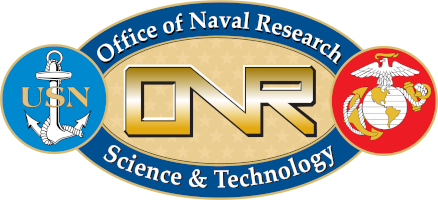


The current progress in Internet services, Internet of Things (IoT), data science and AI technologies have enabled the development and deployment of autonomous systems at large scale, such as unmanned autonomous vehicles, unmanned maritime ships, drone applications, smart transportation, agriculture, manufacturing, just to name a few.
Autonomous systems are designed to adapt their behavior according to running context, operating in a dynamically changing environment. The autonomy of a system enables to carry out a series of instructions chosen between possible courses of action. Decision-making occurs after an information gathering process, which may lead to a subsequent change in system behavior. Autonomy is not absolutely achieved, and still a challenging field of research especially in environments where direct human control is not physically possible.
Successful design and deployment of highly secure autonomous systems is extremely important especially in mission critical applications for which the failure will result in human lives and disasters (e.g., TBD – related navy: satellite failures, drones, robots, engines, human autonomous behavior, and ship). Achieving highly secure autonomous systems will ensure that such systems are safe, reliable, trustworthy and can meet the performance requirements of their applications and services.
The goal of the workshop is to bring together multidisciplinary group (industry, academia, and government) to address these challenges and present their solutions to address them. The 4-day workshop will investigate the following topics that we consider as building blocks to derive a methodology for building autonomous systems:
Enabling Technologies (e.g., 5G networks, software systems, AI/ML, design tools, etc.).
Security and Forensic Modeling, Analysis, Verification and Protection of autonomous systems.
Security regulations and oversight of the deployment and operations of autonomous systems.
Mission critical applications and services in smart service infrastructure, transportation, manufacturing, disaster management, and commerce.
Public Acceptance of autonomous systems and their services.
The objective of this workshop is to provide a platform of exchange between academic, government and industry experts actively addressing these research challenges to present their research approaches and results. Attending this workshop is an opportunity to enable academics, government, and industry experts to facilitate and develop potential collaborations among them.
At the end of the workshop, we will provide a detailed report that summarizes the workshop and a roadmap for scientific research tasks and technology development that will overcome security challenges of autonomous systems.
Juba Agoun, (Chair) Associate Professor - Université Lumière Lyon 2
Mohand Saïd Hacid, Professor - Université Claude Bernard Lyon 1
Salim Hariri, Professor - University of Arizona
Hamamache Kheddouci, Professor - Université Claude Bernard Lyon 1
Alexis Janin, DigitalBerry, France
Salim Hariri, University of Arizona, USA
Angélique Favre, UCBL Lyon Ingénierie Projet, France
Mamadou H. Diallo, Science Director, ONR Global
Liming Chen, Ecole Centale Lyon, France
Muslim Elkotob, Principal Solutions Architect,Vodafone Business, Germany
Mohamed-Lamine Messai, Université Lumière Lyon 2, Lyon, France
Salima Benbernou, Université Paris Cité, Paris, France
Clara Bertolissi, Aix-Marseille University
Raimundas Matulevicius, University of Tartu, Institute of Computer Science, Estonia
Alfredo Cuzzocrea, University of Calabria, Rende, Italy
Hoessein Rastgoftar, The University of Arizona, USA
Mohammed Lalou, University of Bourgogne, France
Taesang Choi, Electronics and Telecommunications Research Institute, Korea
Laurent D’orazio, University of Rennes, France
Claudia Sofia Negri Ribalta, IRiSC - SnT, University of Luxembourg, Luxembourg
Yehia Taher, Université de Versailles Saint-Quentin (UVSQ), Paris, France
Juba Agoun, Université Lumière Lyon 2 – ERIC, France
Sonia Benmokhtar, CNRS – Liris France
Marco Angelini, Sapianza University of Rome, Italy
The workshop will take place on the Campus Scientific de la Doua:
To get there, take Tramway T1 or T4 (stop CONDORCET or UNIVERSITE LYON 1) – Click to see the map 🧭